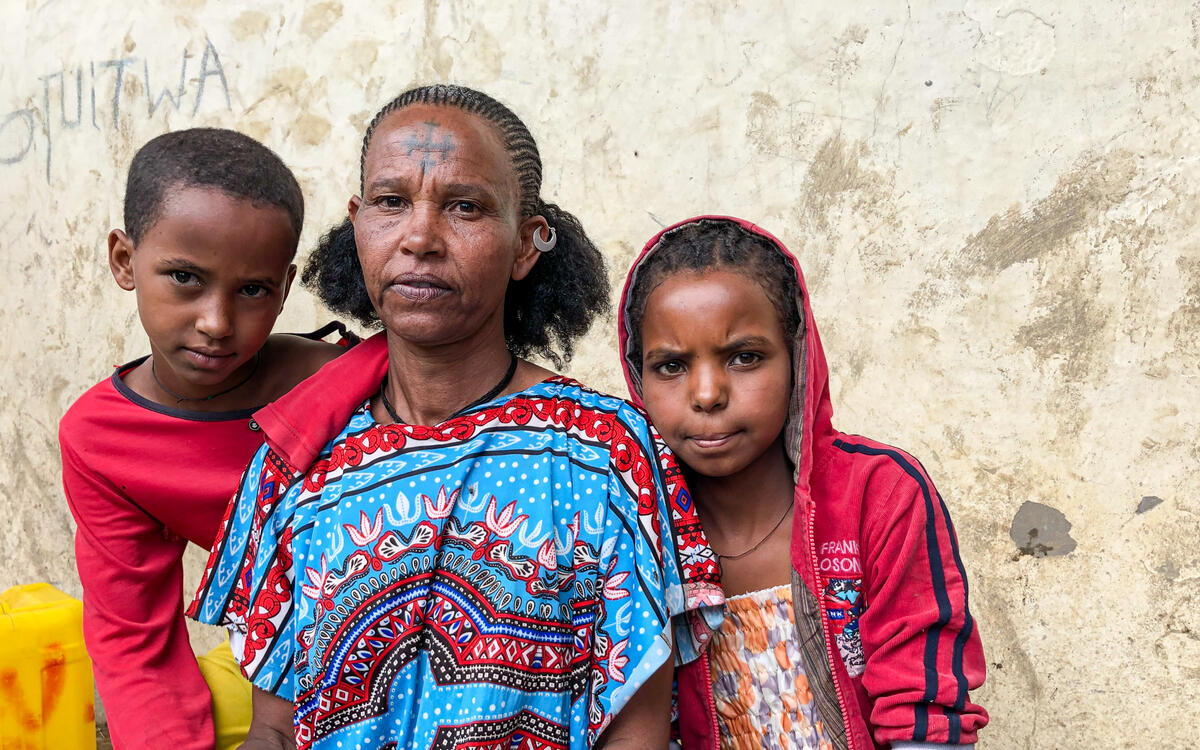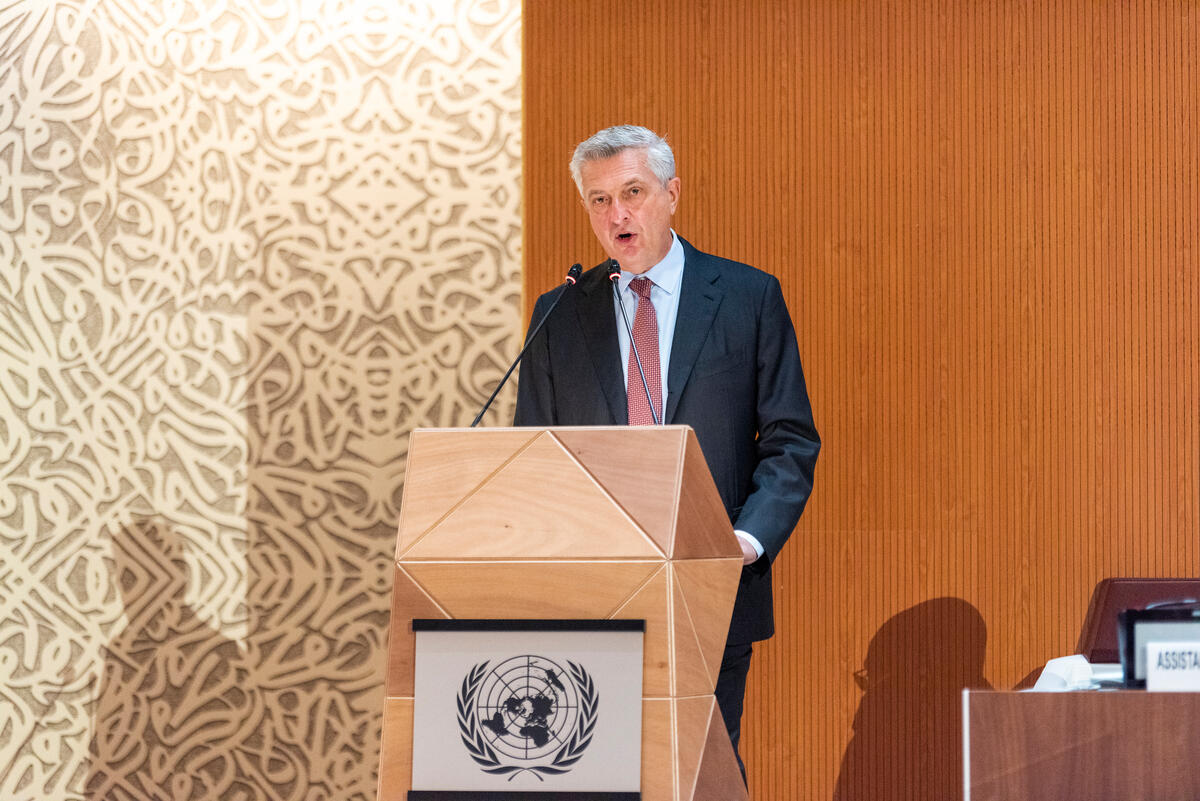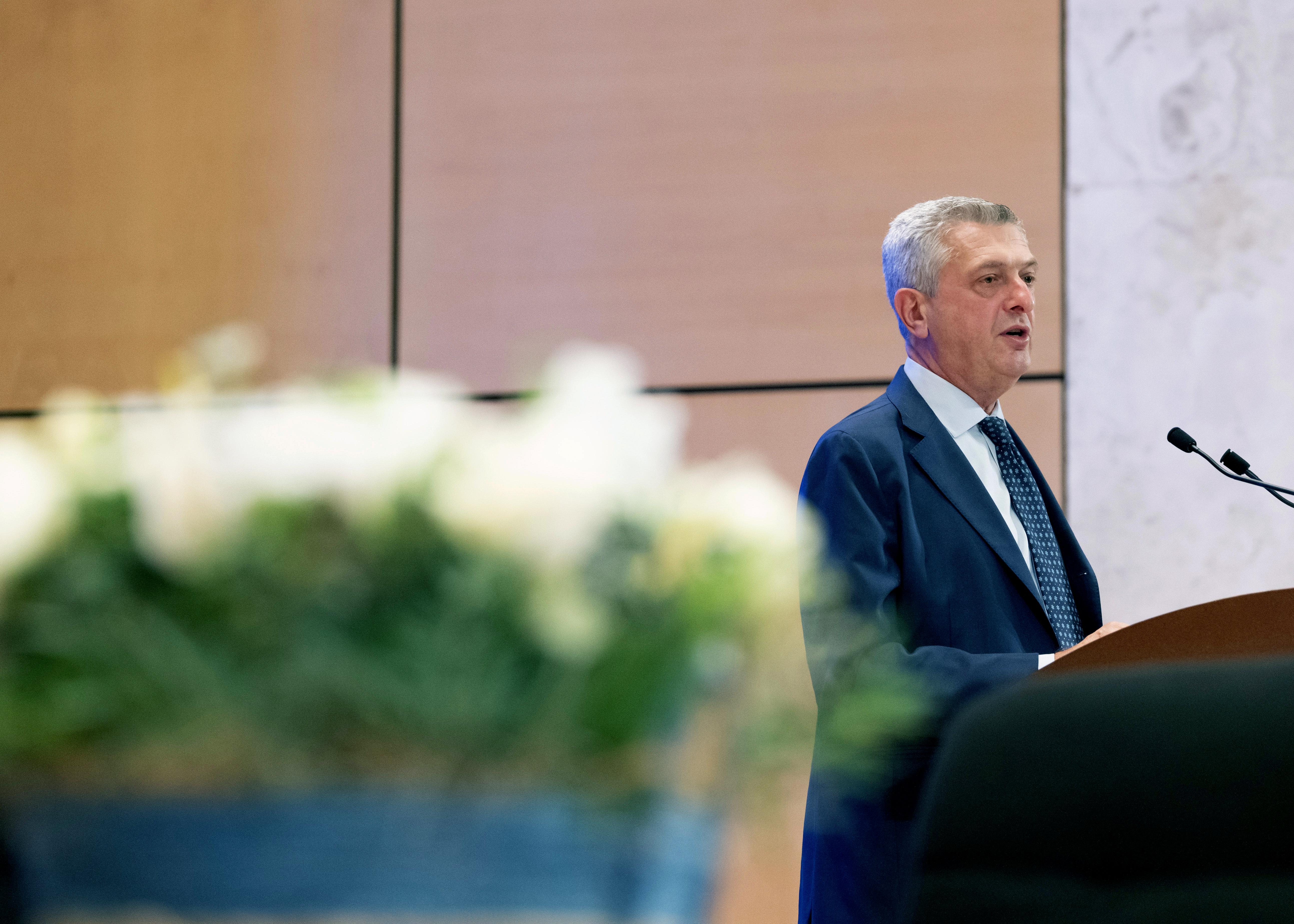Ogata opens 49th Annual UNHCR Executive Committee session
Ogata opens 49th Annual UNHCR Executive Committee session
UN High Commissioner for Refugees Sadako Ogata called Monday for closer international cooperation to resolve refugee problems, emphasizing that "asylum remains the cornerstone of refugee protection."
Opening the 49th annual meeting of UNHCR's Executive Committee in Geneva, Ogata said that international solidarity is needed more than ever before to halt the conflicts which cause so many to flee and which impede their return home, and to shore up fragile peace in many countries. She urged development of a "global solidarity agenda" for the next millennium.
The Executive Committee, with 53 member states, elected Ambassador Victor Rodriguez Cedeño of Venezuela as chairman this year. The outgoing chairman is Ambassador Björn Skogmo of Norway. The Committee adopted as this year's theme, "International Solidarity and Burden-Sharing in all its Aspects: National, Regional and International Responsibilities for Refugees".
In her statement the High Commissioner pointed out that the number of conflicts around the world has continued to increase and their causes have become more complex, yet "political interest in resolving some crises seems to be receding." She deplored what she called an "increased trend toward violence against civilians," and underlined that the sharing of responsibilities toward people uprooted by conflict and persecution is "the most significant aspect of burden-sharing."
The High Commissioner expressed concern that in industrialized and developing countries alike, "governments adopt more restrictive asylum policies, resorting to a narrower interpretation of refugee law." She called for confidence in asylum to be restored, reminding governments that: "Asylum is often the only tool left to the international community to rescue a life in danger." Resettlement of refugees is, Ogata said, a "concrete reflection of international cooperation."
European countries, Ogata said, were "rightly concerned by the possibility that the Kosovo crisis, if left unresolved, will continue to compel civilians to flee to neighbouring countries and to western Europe." She appealed to governments to "maintain an open attitude" toward asylum-seekers from Kosovo, as long as "violence and oppression continue to prevail," and to "intensify political efforts to find a solution to the conflict".
In nearly all of the conflicts in which UNHCR is working today, there are both refugees who have crossed international borders and internally displaced people. Ogata urged "increased international attention and support for the internally displaced."
Even where peace has been achieved, it is often fragile, as in Liberia or Cambodia, and not conducive to the successful reintegration of former refugees or to the coexistence of formerly divided communities. Repatriation and reintegration must be "consolidated through effective international cooperation," Ogata said, and emphasized the importance of donor support for return and reintegration activities. UNHCR has been actively engaged in discussions with other UN bodies and with the World Bank on ways and means of bridging the gap between humanitarian and development assistance.
The High Commissioner appealed to governments for flexibility and predictability in the funding they provide to UNHCR, in order to maintain the effectiveness of the refugee agency. Funding, however, is just one element of effectiveness. Partnerships with other agencies of the United Nations and with non-governmental organizations remain vital. Security and welfare of staff must also be assured: 21% of UNHCR staff are working today in high-risk, frequently isolated, locations. Ogata paid particular tribute to Vincent Cochetel, the 37-year-old head of UNHCR's office in North Ossetia, who was abducted in late January of this year in Vladikavkaz and is still held hostage, and called on the Russian Federation to bring a swift and positive end to Cochetel's ordeal.









